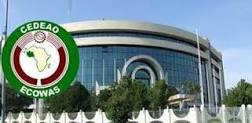By Frank Sainworla, Jr. fsainworla@yahoo.com
Findings from a two-week investigations by an ECOWAS Technical team of elections experts show that Liberia’s National Elections Commission, NEC’s “existing voter roll, though it is not perfect, can be used for a credible election.”
The report just released by the sub-regional body says the investigation was conducted from November 26-December 6, 2017 and the experts had a task to “make a critical assessment” of the voter register used in the October 10, 2017 presidential and legislative elections.
The results of the polls were rejected by the opposition Liberty Party (LP) of Charles Brumskine and the ruling United Party (UP) of Vice President Joseph Boakai, who pursued court action.
LP, UP and their collaborating parties—Benoni Urey’s ALP and Alexander Cummings’s ANC claim that the elections were marred by massive fraud and gross irregularities citing disenfranchisement of voters and lack of credible voter roll.
But in their findings, the ECOWAS investigations team led by the renowned former head of Ghana’s Independent Elections Commission, Dr. Kwadwa Afari-Gyan who signed the report said: “From the interrogation of the registration database, there is no indication that any voter was disenfranchised by not having his/her name on the voter roll.”
It said all the data of persons scanned into the system though the OMR (Optical Mark Recognition) forms are clearly evident in NEC’s database.
According to the experts’ findings, since Liberia’s electoral body published the registered voters last September, “there has been no addition on the roll, the data stamp on all records of the database were verified.”
The report however noted that there were lapses by late procurement of equipment and with sub-contracting of printing of some OMR forms, which the findings noted was the foundation of most of the issues which sparked confusion. It said OMR forms were also “poorly designed”.
But the report said, “it was confirmed to the team that information on damaged OMR forms were processed through the use of attachment forms at the data center.”
In addition, it said, “the lack of sequential distribution of forms caused the reported chaos” with queue control at various precincts.
One of the flaws pointed out in the October 10 elections by the ECOWAS assessment team was poor civic and voter education and low stakeholders engagement, which they said contributed to the tension and confusion.
The report then made a number of recommendations for future elections in Liberia such as early procurement of equipment and other election related materials and the halting of the SMS voter verification system.
In future, the investigations team recommended that NEC “should ensure that before voter roll is exhibited, data process must have been completed and register duplicated so that those on the display roll would be sure they are valid voters.”
It is also recommended that NEC should improve voter and civic education and stakeholder engagement to help reduce tensions amongst voters in the country.
“From all indications, voter enlightenment, publicity and stakeholder engagement appear to be low, as many Liberians are not aware of the workings of NEC,” the ECOWAS election experts recommended.
They also recommended in their report the introduction of a biometric register, which the experts say is “a lasting solution to the frequent voter enrollment exercises,” among other things.
Amidst the claims of the existence of a fraudulent Final Registration Roll (FRR), NEC authorities have always insisted that the roll was credible.

